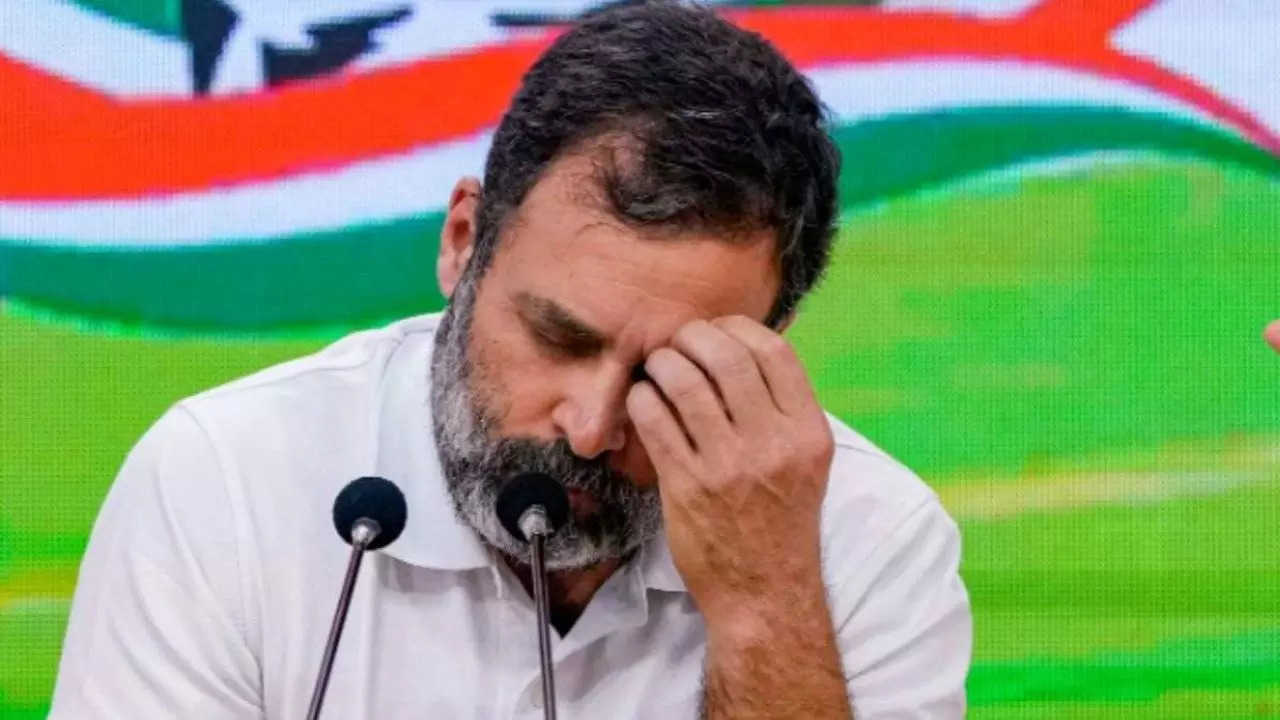Rahul Gandhi Faces Legal Trouble Over Caste Census Remarks: A Deep Dive into the Controversy
Get ready to be shocked! Congress leader Rahul Gandhi is facing a legal battle over his controversial comments about a caste census. This explosive situation has ignited a firestorm of debate and could have major implications for Indian politics. Let's dive deep into the details of this unfolding drama!
The Controversial Statements that Sparked Outrage
During the Lok Sabha election campaign, Rahul Gandhi made some bold claims about implementing a caste census if the Congress party came into power. He promised a comprehensive financial and institutional survey to identify wealth distribution in the country. His vision of a potential redistribution of wealth sparked an enormous backlash among several political parties.
Gandhi's Vision: Redistribution and Social Justice
Gandhi argued that the primary purpose of this survey was to identify the socio-economic realities and disparities affecting the marginalized groups of India such as the scheduled castes (SCs), scheduled tribes (STs), and other backward classes (OBCs). It's worth noting that India is an incredibly diverse country, and various castes have experienced differing levels of opportunity and disadvantage historically.
This plan proposed an unprecedented step to tackle deep-seated inequalities, one which many feel could initiate a sweeping movement towards a more equitable India. However, this goal wasn’t met without stiff political resistance.
The Opposition's Fierce Counterattack
Numerous political parties have openly criticized the comments of the former president, voicing accusations that such a policy would cause undue division, not reconciliation. These groups raise worries about the logistical challenges and potentially negative implications of altering long-established power structures.
The Legal Ramifications: A Court Notice and the Fight Back Begins
Following the statement made, the Bareilly district court issued a notice to Rahul Gandhi over complaints that these remarks were incendiary and divisive. Petitioner Pankaj Pathak stated the campaign messages were meant to create internal strife in the nation. This legal move underscores the gravity of the controversy. Several people are saying the proposed wealth redistribution could disrupt India's economic standing.
The Petitioner's Argument: A Case of National Division?
The petition against Rahul Gandhi alleges that his statements during the election campaign were not just political maneuvering; instead, they represented an active attempt to create discord between different segments of India's population and destabilize the socio-political status quo.The charges are serious, and the case will be a major point of focus as we await further developments.
Gandhi's Response: Dismissing the Notice as a Waste
Congress leader and close aide Udit Raj rejected the accusations of his colleague's behavior. Raj called the legal action and the petition "a waste" and questioned the suitability of the justices involved, indicating he did not think that such judicial intervention was either justified or appropriate. This sharp reaction has heightened the overall political tensions surrounding the ongoing court case.
Analyzing the Implications: Socio-Political Earthquake or Necessary Change?
The entire situation created by this court notice underscores fundamental challenges regarding wealth disparity and social justice within India's complex social structures. Whether Rahul Gandhi's idea of implementing a caste census and wealth redistribution is a viable political solution is the very heart of the problem.
The Socioeconomic Divide in India: A Long-Standing Issue
India has a longstanding history of social and economic disparities and addressing this requires sensitivity and deep considerations for existing political and social dynamics. The very real concern, as stated by some opponents of Gandhi, is that proposals such as the proposed redistribution of resources could create an entirely different range of unforeseen economic and political issues.
Potential Consequences of Wealth Redistribution
Significant economic and political consequences could emerge from altering long-established distribution frameworks, especially when considering possible issues of implementation and equity. Could unintended side effects threaten to undermine India’s overall economic well-being, which must be a consideration before widespread economic changes can be made?
What's Next in this High-Stakes Legal Battle?
The court notice serves as a significant turning point. All eyes are now on the scheduled court hearing on January 7th. The outcome will have implications not just for Rahul Gandhi, but also for India's political landscape and the ongoing discourse on social justice and equitable distribution of wealth and resources. This highly charged issue has many wondering how the legal system will deal with politically charged pronouncements.
A Wait-and-Watch Approach for Now
For the present time, it's advisable to hold judgment until additional details or definitive judicial pronouncements are released concerning Rahul Gandhi and this critical lawsuit. The legal process in this complex socio-political issue should run its course completely before any opinions can truly be weighed fairly.
Looking Ahead
Ultimately, Rahul Gandhi's comments on wealth distribution and the legal action taken against him reflect an ongoing debate that is very significant within Indian society, the nation and in its future outlook. This situation's development will likely heavily impact policy making across various social aspects of life in India. Stay tuned to find out more!
Take Away Points:
- Rahul Gandhi faces a court notice over his comments about a caste census and wealth redistribution.
- The petitioner alleges Gandhi's statements were divisive and an attempt to incite unrest.
- This case has reignited debate on wealth disparity, social justice, and policy in India.
- The hearing is scheduled for January 7th, and the outcome will have significant political implications.
- This case brings up long standing discussions on socioeconomic equality and challenges.









